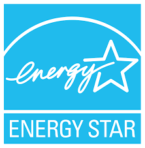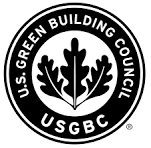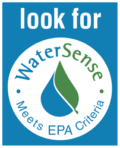WHAT IS THE LEED FOR HOMES GREEN BUILDING RATING SYSTEM?
Coastline Ventura was designed and constructed under the green building guidelines mandated by the LEED for Homes Certification program.
During the construction of Coastline Ventura, LEED for Homes requirements were field verified, and performance tested by a third-party agency approved by a USGBG LEED for Homes Provider (a local organization that administers LEED for Homes). The attached checklist identifies LEED for Homes program requirements implemented at Coastline Ventura.
The LEED for Homes energy efficiency performance requirements incorporate standards mandated by the Environmental Protection Agency’s (EPA) ENERGY STAR program. ENERGY STAR is a joint program between the U.S. EPA and the U.S. Department of Energy helping consumers save money and protect the environment through energy efficient products and practices.




WHAT THIS MEANS FOR YOU:
The green building aspects of Coastline Ventura were a result of a collaborative effort between the architect, engineers, and the construction team. The list that follows contains green building features incorporated as part of the LEED for Homes program.
GREEN FEATURES:
- Energy efficient light fixtures.
- Bathroom fans are ENERGY STAR qualified and equipped with humidity sensors.
- All units equipped with water saving toilets, faucets, showerheads, washers, and dishwashers.
- ENERGY STAR qualified washers, dryers, refrigerators, and dishwashers installed in all units.
- The building and units are all non-smoking
- Building location provides local access to numerous community services such as beaches, public transportation, banks, restaurants, markets, medical and dental offices.
- Provides access to open space.
- All light fixtures are energy efficient.
- 5% of total parking is devoted to low-emitting vehicles.
HOW YOU CAN LIVE GREEN AT COASTLINE VENTURA:
- Separate waste, food waste, and recycling (paper, cardboard, aluminum cans, plastic bottles, glass, CFL’s, batteries, E-Waste (cell phones, computers, electronic equipment, etc.)).
- Walk or bike to local businesses rather than drive.
- If driving, utilize ride shares or use public transportation.
- For more information on the local bus routes and stops near Coastline Ventura: http://www.goldcoasttransit.org/schedules/current-schedules
- Conserve water at home whenever possible because saving water saves energy. In California, 19% of our electricity and 32% of our gas is used to pump, heat, or clean water.
- Use environmentally friendly cleaning products in your home. Volatile organic compounds (VOC) in cleaning products can affect indoor air quality and contribute to smog formation in outdoor air.
- For more information on safer cleaning product choices: https://www.epa.gov/sites/production/files/2016-10/documents/saferchoice-factsheet-generalconsumer_0.pdf
ENERGY SAVINGS TIPS:
Lighting
- Install LED bulbs wherever possible. LEDs use significantly less energy and last far longer than incandescent bulbs.
- Open blinds and use natural light during the day instead of lamps.
- If you need a night light, consider using an LED or similar energy efficient type.
- Turn off lights when not in use.
Air Conditioning
- In the day, close the window blinds during summer months to reduce incoming solar radiation which will help reduce apartment cooling needs.
- Change filter regularly.
- Use the bathroom ENERGY STAR exhaust fan to remove the heat and humidity generated from taking showers or baths.
- Health permitting, set your air conditioner thermostat higher to save on costs to cool your apartment.
- On mild climate days, opening windows allowing cool air to enter reduces the need for air conditioning.
Heating
- For apartment units with south facing windows, open the window blinds during the day to allow solar heat in.
- Dress warmer and set the thermostat as low as comfortably possible in the winter.
Refrigerator
- Your apartment has been equipped with an ENERGY STAR qualified model, which can be up to 20% more energy efficient than standard units. Minimize the number of times the door is opened; each time the door is opened requires the compressor to replace the cool air lost by opening the door.
- Keep your refrigerator full as they operate most efficiently when full.
Cooking
- Using a small pot on a large burner wastes energy.
- Microwave ovens are more energy efficient than standard ovens.
- Avoid extensive use of the oven or cooktop on warmer days to help reduce the cooling needs of your apartment.
Home Electronics
- Turn off computers and monitors when not in use. A computer in standby mode still uses electricity.
- Use power strips to plug in radios, printer, cell phone or other chargers and other personal electronics. Turn off the power strip when not in use.
- ENERGY STAR qualified TVs use about 30% less energy than standard units.
- ENERGY STAR qualified DVD players use about one quarter of the energy used for standard models.
- An ENERGY STAR labeled computer uses far less electricity than computers without this designation.
- ENERGY STAR qualified computer monitors use 25% to 60% less electricity than standard models.
- A laptop computer uses up to 90% less energy than bigger desktop models.
Laundry
- Clean the lint trap before using the dryer, allowing laundry to dry more efficiently.
- Only wash and dry full loads of laundry.
- Try to dry clothes by combining similar garments into one load instead of multiple fabric types that require different drying times.
- Wash and dry clothes at night when power usage is lower.
- Turn off the heat dry on your dryer.
Hot Water
- Wash only full loads of laundry whenever possible. Washing clothes in cold water will reduce the hot water needs of the building.
- Turn off hot water when brushing teeth, shaving, etc. This saves water and energy.
- New dishwashers use half the water of those that are more than 10 years old.